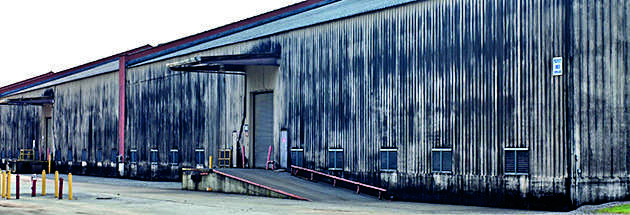The ethanol-fuelled fungus known as whiskey fungus has thrived for centuries around distilleries and bakeries. It’s been the source of complaints from residents who live near Kentucky bourbon distilleries.
Now it is driving a wedge between some residents of Lincoln County, Tennessee, and Jack Daniel‘s, the famed distillery founded in 1866 in neighbouring Moore County. For months, some residents have complained that a sooty, dark crust has blanketed homes, cars, road signs, and trees as the fungus has spread uncontrollably, fed by alcohol vapours wafting from charred oak barrels of aging Jack Daniel’s whiskey.
Jack Daniel’s has built six warehouses, known as barrelhouses, to age whiskey in rural Lincoln County, which is home to about 35,000 residents, and is building a seventh on a property that has room to house one more, a company spokesman said. The distillery has asked the county to rezone a second property where it could build six additional barrelhouses.
A company representative, Donna Willis, told county officials in November that 14 barrelhouses would generate $1 million in annual property tax revenue for the county, which had approved about $15 million in general fund spending for the 2022 fiscal year.
But not all residents are happy about the expansion. Christi Long, who owns a local mansion built in 1900, sued the county in January, contending that barrelhouses near her property lacked the proper permits. A judge ruled last week that one barrelhouse currently under construction had not been properly approved and that its building permit would have to be rescinded until Jack Daniel’s obtains the necessary permits. The building project has been halted. Long and her husband, Patrick, said whiskey fungus had already inundated the property, darkening the roof and exterior walls, creeping over the rock garden and metal gate, and encrusting the branches of trees. The Longs said they use a high-pressure hose to wash the property every three months with bleach and water, but the fungus always returns.
Tracy Ferry said the fungus had accumulated on the roof of her house and car and on trees on her property. “I could try and sell, but what am I going to get?” Ferry said. “Who’s going to want to live here?” Some locals are now calling for Jack Daniel’s to install air filters to combat the problem. But, Willis said air filters could hurt the flavour that the whiskey acquires during the aging process.
The fungus can destroy property and can cling to almost any surface, said James A Scott, a professor who has studied the fungus since 2001. The fungus – named Baudoinia compniacensis – has been observed since the 1870s. It has also led to complaints and lawsuits from Scotland to Canada and the Caribbean.
Now it is driving a wedge between some residents of Lincoln County, Tennessee, and Jack Daniel‘s, the famed distillery founded in 1866 in neighbouring Moore County. For months, some residents have complained that a sooty, dark crust has blanketed homes, cars, road signs, and trees as the fungus has spread uncontrollably, fed by alcohol vapours wafting from charred oak barrels of aging Jack Daniel’s whiskey.
Jack Daniel’s has built six warehouses, known as barrelhouses, to age whiskey in rural Lincoln County, which is home to about 35,000 residents, and is building a seventh on a property that has room to house one more, a company spokesman said. The distillery has asked the county to rezone a second property where it could build six additional barrelhouses.
A company representative, Donna Willis, told county officials in November that 14 barrelhouses would generate $1 million in annual property tax revenue for the county, which had approved about $15 million in general fund spending for the 2022 fiscal year.
But not all residents are happy about the expansion. Christi Long, who owns a local mansion built in 1900, sued the county in January, contending that barrelhouses near her property lacked the proper permits. A judge ruled last week that one barrelhouse currently under construction had not been properly approved and that its building permit would have to be rescinded until Jack Daniel’s obtains the necessary permits. The building project has been halted. Long and her husband, Patrick, said whiskey fungus had already inundated the property, darkening the roof and exterior walls, creeping over the rock garden and metal gate, and encrusting the branches of trees. The Longs said they use a high-pressure hose to wash the property every three months with bleach and water, but the fungus always returns.
Tracy Ferry said the fungus had accumulated on the roof of her house and car and on trees on her property. “I could try and sell, but what am I going to get?” Ferry said. “Who’s going to want to live here?” Some locals are now calling for Jack Daniel’s to install air filters to combat the problem. But, Willis said air filters could hurt the flavour that the whiskey acquires during the aging process.
The fungus can destroy property and can cling to almost any surface, said James A Scott, a professor who has studied the fungus since 2001. The fungus – named Baudoinia compniacensis – has been observed since the 1870s. It has also led to complaints and lawsuits from Scotland to Canada and the Caribbean.
